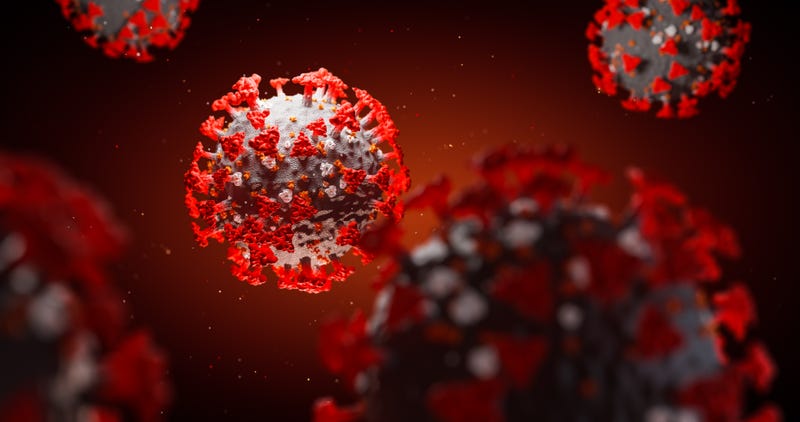COVID-19 Fear: Is there an antidote? Part 2.

In part 1 of the article we saw the negative effects of amygdala hijack and how it is possible to prevent it. (https://prettyhealthywithdrpriti.com/covid-19-part-1)
Let us look at few other things we can do to dampen fear.
1. Fear contagion
There is a part of the brain called anterior cingulate cortex (ACC). As Dr. Jacek Debiec, MD, PHD, psychiatrist and researcher notes, "When you watch another person express fear your ACC lights up. Studies in animals confirmed that the message about another's fear travels from ACC to amygdala ( part of the brain that detects threat). Hence making sense why fear is contagious." Fear contagion happens unconsciously; therefore, fear contagion is not under voluntary control. When you see someone frantically buy a bulk of toilet paper, due to the fear of scarcity, you may do the same. Being surrounded by calm people, limiting your exposure to news, and limiting your time on social media are some of the strategies to avoid fear contagion.
2. Social media and news
Be careful of the source of information on newsfeeds and media. Find a trusted media source and rely on that information for reputable information. News circulating in the media can put people in a hypervigilant state. During this time at home, people take notice of the increasing amounts of information, read more, hear more and often interpret information in a threatening way. Yes, it is important to stay updated but equally important to stay away from unverified sources, and viral social media posts with medical information without proper references. Everyone these days has a PhD on the current topics at hand.
Also do not forward or repost scary messages unless you have a validated trusted source. Let it pass through the double filter: Is it true? If it is true, is it necessary? As noted, too much media exposure can heighten ones' anxiety. While one may be speaking from experience, it still may not be the complete picture. A friend called me the other day as she was panicking over an article written by an ICU physician. While it may be true that patients are on ventilators and people are unfortunately dying, a written article may not reveal the complete story. This physician is perhaps only seeing worse case scenarios. People are also getting better and there are people contracting mild forms of the disease as well; however, this good news is less publicized. Be careful with the news, especially if you have underlying OCD or anxiety disorder.
Have a friend or a family member help filter the news for you. Connect with people who can calm you.
3. Schedule worry time
Schedule time to worry for 15-20 minutes per day. The Association for Behavioral and Cognitive Therapies (ABCT) notes that setting a daily half-hour “worry period” at the same time and place helps to stay in the present moment for the rest of the day.
4. Compassion
Studies show that mobilizing compassion can have a positive impact on one’s mental health. Using the resources you have can help others during this crisis. For example, a Brooklyn restaurant owner transformed his restaurant into a soup kitchen to feed laid off workers. When we hear stories of people meeting the needs of others, we feel what is called moral elevation—it inspires us! You can show compassion in many ways: call up elderly neighbors and relatives, call those in isolation, and seek out organizations needing volunteers and philanthropy. Spread messages of hope to those around you.
Let us make compassion go viral!
5. Spiritual
“Life, its substance and purpose is an enigma, difficult yet not unknowable. With our progressive thinking, we are daily solving some of its secrets. But inspite of all our devices and strategies and inventions, it seems we are still playthings in the hands of destiny and have a long way to go before we can be independent of nature's domination,” says Paramhansa Yogananda.
Hence comes the necessity of a fearless reliance on our true self and on a Supreme Deity/Superpower/God or your spiritual practice. Exercise absolute fearless surrender to that higher power. Surrender does not mean laziness; it does not mean giving up; it means to strive for your best and leave the rest to a higher power.
6. Connect to your higher purpose
Try connecting to your life’s purpose. If you do not know your purpose already, this time may be perfect for you to start with personal development to help discover your purpose. Having a focus on the big picture helps to reduce day to day anxiety. Create a list of things you have been putting off for years and start making strides to complete some of these tasks. As Mark Twain said, “The two most important days in your life are the day you are born and the day you find out why.” Know your why.
A good read I would recommend is Dr. Sanjiv Chopras' The Two Most Important Days.
Instead of removing fear, focus on adding faith, hope, courage, love and compassion. Fear will get diluted!
Take care and stay safe, storms don’t last forever, this too shall pass!